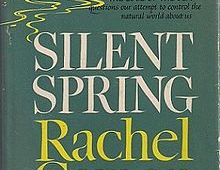
Marking October Breast Cancer Prevention Month, From Pink to Prevention has launched a 38 Degrees petition entitled No more poison in our hands – Time for a ban on all paper till receipts.
Did you know that every time you shop the chances are you end up with poison on your hands? Bisphenol A (BPA) is a chemical used to coat till and other types of receipts. It can be readily absorbed through the skin, interfering with our hormones and is linked to breast and prostate cancer, diabetes, obesity, and reproductive and neurological disorders.
Elevated levels of BPA have been found in the urine of cashiers who are the most intensively exposed of all. Indeed, we all have levels of this chemical in our bodies. And now similar health concerns are being raised for a BPA substitute Bisphenol S.
Not only are till receipts toxic, they are yet another source of wastepaper, ending up in the bottom of your bag or filling your purse or wallet. The vast majority of the UK’s 11.2 billion printed daily are increasingly unnecessary given the various electronic alternatives.
It’s time to ban the paper receipt in the UK, following the lead of several countries which have banned or severely restricted the use of BPA in receipts.
The petition will be sent to all major UK retailers, the Health and Safety Executive, Secretary of State for Health, the British Retail Consortium and leading breast cancer charities.
PLEASE SIGN HERE https://you.38degrees.org.uk/petitions/no-more-poison-in-our-hands-time-for-a-ban-on-all-paper-till-receipts
And please share
Facebook Twitter
Thank-you.
Helen, Deb & Ho-Chih
Continue reading














 In this October Breast Cancer Awareness Month, our campaign ‘From Pink to Prevention’ is trying to raise the level of debate about the much marginalised issue of environmental and occupational links to the disease. Sixteen campaigning organisations from England, Scotland, Germany, USA, Australia, Philippines, and several pan-EU networks have signed on to our statement which asks why,
In this October Breast Cancer Awareness Month, our campaign ‘From Pink to Prevention’ is trying to raise the level of debate about the much marginalised issue of environmental and occupational links to the disease. Sixteen campaigning organisations from England, Scotland, Germany, USA, Australia, Philippines, and several pan-EU networks have signed on to our statement which asks why, 




